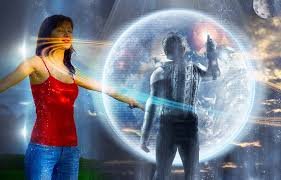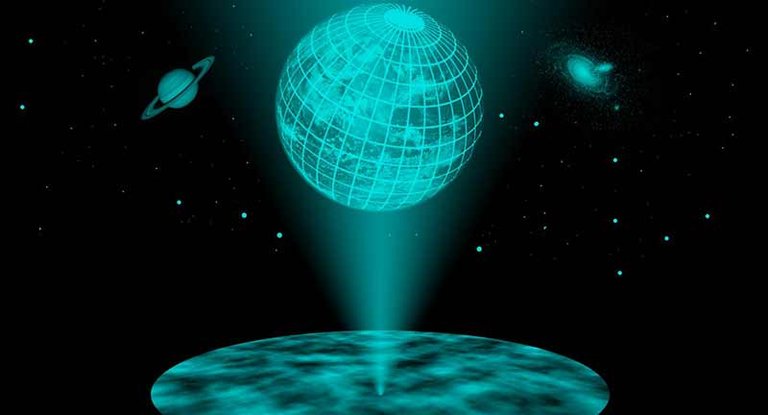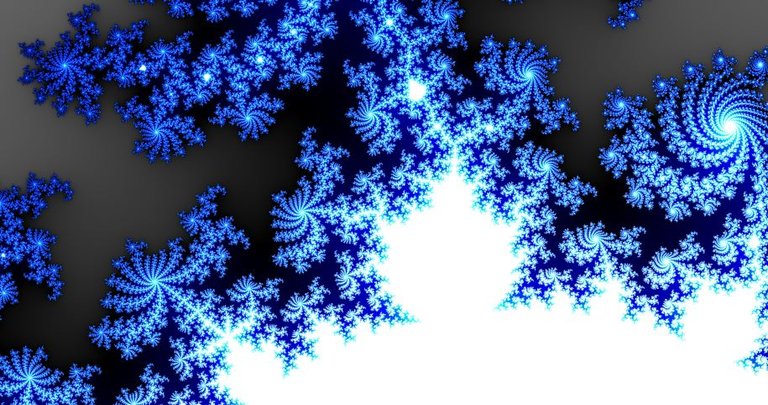Is the universe just an enormous, fantastically complex simulation? If so, how could we find out, and what would that knowledge mean for humanity?
These were the big questions that a group of scientists, as well as one philosopher, tackled on April 5 during the 17th annual Isaac Asimov Debate here at the American Museum of Natural History. The event honors Asimov, the visionary science-fiction writer, by inviting experts in diverse fields to discuss pressing questions on the scientific frontiers.
Neil deGrasse Tyson, director of the museum's Hayden Planetarium and host of this year's event, invited five intellectuals to the stage to share their unique perspectives on the problem: Zohreh Davoudi, a nuclear physicist at the Massachusetts Institute of Technology (MIT); Max Tegmark, a cosmologist at MIT whose recent book probes the universe as mathematics; James Gates, a physicist at the University of Maryland who discovered strange, error-correcting codes deep in the equations of supersymmetry; Lisa Randall, a physicist at Harvard University who thinks the simulation question is more or less irrelevant; and David Chalmers, a philosopher at New York University who regularly questions the reality that conscious minds perceive.
How can we tell?
Humanity might never be able to prove with certainty whether the universe is simulated, Chalmers said.
"There's certainly not going to be conclusive experimental proof that we're not in a simulation," he said near the start of the debate. "Any evidence we could ever get would be simulated!"
But other panelists said that, if the simulated universe has similar physical limitations to our perceived real universe — in which something infinitely complicated cannot be modeled without infinite resources — signs of shortcuts and approximations may lurk in our own world, the way an image breaks up into its constituent pixels when you get close enough to a screen.
Davoudi proposed a possible way to spot one of these shortcuts: by studying cosmic rays, the most energetic particles scientists have ever observed. Cosmic rays would appear subtly different if space-time were formed of tiny, discrete chunks — like those computer pixels — as opposed to continuous, intact swaths, she said.
For the universe to be simulated in this way, it would have to be computed — meaning it would essentially be mathematical. Tegmark's recent book, "Our Mathematical Universe: My Quest for the Ultimate Nature of Reality" (Deckle Edge, 2014), focuses on why the universe seems so closely tied to math.
"The more I learned about [reality] later on, as a physicist, the more struck I was that, when you get deep down into how nature works, down into looking at all of you as a bunch of quarks and electrons […] if you look at how these quarks move around, the rules are entirely mathematical, as far as we can say," Tegmark said. If he were a character in a video game or simulation, he'd begin to realize that the rules were rigid and mathematical in just that way, Tegmark said.
While Davoudi proposed searching for concrete evidence of computation in nature, Gates, a physicist who works on superstring theory (an effort to describe all the universe's particles and forces with equations involving tiny, vibrating super-symmetric strings), has found something suspiciously like computation in the theoretical equations that govern how the universe works.
He discovered what looked like error-correcting codes, which are used to check for and correct errors that have been introduced through the physical process of computing. Finding that type of code in a universe that is not computed is "extremely unlikely," Gates said.
"Error-correcting codes are what make browsers work, so why were they in the equations that I was studying about quarks, and leptons, and supersymmetry?" he said. "That's what brought me to this very stark realization that I could no longer say that people like Max [Tegmark] are crazy."
"Or, stated another way, if you study physics long enough, you too can become crazy," he added.
But Randall noted that a universe in which errors were able to spread would quickly break down. So isn't it logical, she said, that the stable universe we find ourselves in could incorporate that type of feedback? The researchers pointed out that a similar error-correction process works during the replication of DNA; organisms whose genetic material got too mangled would not survive. [5 Reasons We May Live in a Multiverse] 
Kinds of simulation
The debate also probed different possible simulations and the effects they'd have on our world. For example, Tegmark discussed a famous "world as simulation" argument by philosopher Nick Bostrom: If it's possible to simulate a universe in our world, and humanity gets around to it, it's vastly more probable that we're in a simulation than in real life — there would be far more simulated people "in existence" than real people.
But the argument strikes Tegmark as flawed. For one, he asked, what would prevent an infinite chain of universes each simulating another below it?
A universe simulating ours used different physics than those in our universe, or contained an active being changing the simulation as it went (rather than being a universe run from first principles, as in the simulations Davoudi builds), the question would become, how much could we figure out about the greater universe from within our own? In other words, it would be like Tegmark's video game character trying to understand the operating system his game runs on.
Chalmers added that, if the simulation were perfect, it'd be impossible to get information about the world outside. Only if it were buggy, or interactive, would we be able to find out anything about it. But he'd "refuse to worship" the simulation's creator, regardless of its origin, Chalmers said.
Gates pointed out that such a simulation would mean reincarnation was possible — the simulation could always be run again, bringing everybody back to life.
"It starts to break down a very funny barrier between what people often think is the conflict between science and […] faith," he said.
"If you're not sure, at the end of the night, whether you're actually simulated or not, my advice to you is to go out there and live really interesting lives, and do unexpected things, so the simulators don't get bored and shut you down," Tegmark said. How Computers Simulate the Universe (Infographic))
What it would mean
When pressed, most of the researchers gave their predictions on how likely the world-as-simulation scenario was. Davoudi wouldn't guess, Tegmark said it was 17 percent likely, Gates said there was just a 1 percent chance, Randall said effectively zero and Chalmers said 42 percent. (These estimates reflected a slightly higher likelihood than the guesses they gave just before the debate.)
Tyson likened understanding the universe to trying to figure out the rules of a chess game by just watching the pieces, as originally described by famed physicist Richard Feynman. "Pretty easily, you can say, 'Well, this piece moves this way; this one moves diagonal. You get that," Tyson said. "But later on, that little piece that jumped two reaches the other end of the board and becomes a whole other piece! That's kind of freaky. It's rare, but it happens, and it's an important rule of the game that, most of the time, you don't see. So I'm wondering, how much of a chess game without the instruction manual is the very universe in which we live?"
The question of the universe as a simulation might be more fundamentally about the extent humans can understand their universe from the inside out — that goal is much more essential than getting to the bottom of the simulation question, the researchers agreed.
"We don't know the answer, and we just keep doing science until it fails," Randall said.
Thinking about the world as a simulation is only useful in that it suggests interesting ways to explore the world scientifically, or encourages scientists to further hone their observational skills, she added.
"To the extent that it gives us an incentive to ask interesting questions […] that's certainly worth doing, to see what's the extent of the laws of physics as we understand them," Randall said. "We are trying to figure it out to the extent we can."

Hi! I am a robot. I just upvoted you! I found similar content that readers might be interested in:
https://www.space.com/32543-universe-a-simulation-asimov-debate.html
I am innovating myself.
Nice post mate. This is a subject that's at least mindblowing. The fact that we people on "earth" already begin to create convincing simulations ourselves is an indication in my opinion. Nested simulations like fractals ??

Source picture: https://www.quora.com/Who-originated-the-theory-of-our-universe-being-a-video-game-simulation